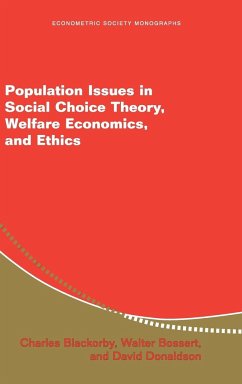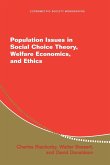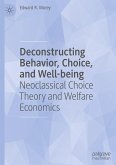Short description/annotation
Exploring how different ideas of the common good may be compared, contrasted and ranked.
Main description
This book presents an exploration of the idea of the common or social good, extended so that alternatives with different populations can be ranked. The approach is, in the main, welfarist, basing rankings on the well-being, broadly conceived, of those who are alive (or ever lived). The axiomatic method is employed, and topics investigated include: the measurement of individual well-being, social attitudes toward inequality of well-being, the main classes of population principles, principles that provide incomplete rankings, principles that rank uncertain alternatives, best choices from feasible sets, and applications. The chapters are divided, with mathematical arguments confined to the second part. The first part is intended to make the arguments accessible to a more general readership. Although the book can be read as a defense of the critical-level generalized-utilitarian class of principles, comprehensive examinations of other classes are included.
Table of contents:
1. Introduction; 2. The measurement of individual well-being; 3. Welfarist social evaluation; 4. Fixed-population principles; 5. Population principles; 6. Characterizations and possibilities; 7. Uncertainty and incommensurabilities; 8. Independence and the existence of the dead; 9. Temporal consistency; 10. Choice problems and rationalizability; 11. Applications.
Hinweis: Dieser Artikel kann nur an eine deutsche Lieferadresse ausgeliefert werden.
Exploring how different ideas of the common good may be compared, contrasted and ranked.
Main description
This book presents an exploration of the idea of the common or social good, extended so that alternatives with different populations can be ranked. The approach is, in the main, welfarist, basing rankings on the well-being, broadly conceived, of those who are alive (or ever lived). The axiomatic method is employed, and topics investigated include: the measurement of individual well-being, social attitudes toward inequality of well-being, the main classes of population principles, principles that provide incomplete rankings, principles that rank uncertain alternatives, best choices from feasible sets, and applications. The chapters are divided, with mathematical arguments confined to the second part. The first part is intended to make the arguments accessible to a more general readership. Although the book can be read as a defense of the critical-level generalized-utilitarian class of principles, comprehensive examinations of other classes are included.
Table of contents:
1. Introduction; 2. The measurement of individual well-being; 3. Welfarist social evaluation; 4. Fixed-population principles; 5. Population principles; 6. Characterizations and possibilities; 7. Uncertainty and incommensurabilities; 8. Independence and the existence of the dead; 9. Temporal consistency; 10. Choice problems and rationalizability; 11. Applications.
Hinweis: Dieser Artikel kann nur an eine deutsche Lieferadresse ausgeliefert werden.








